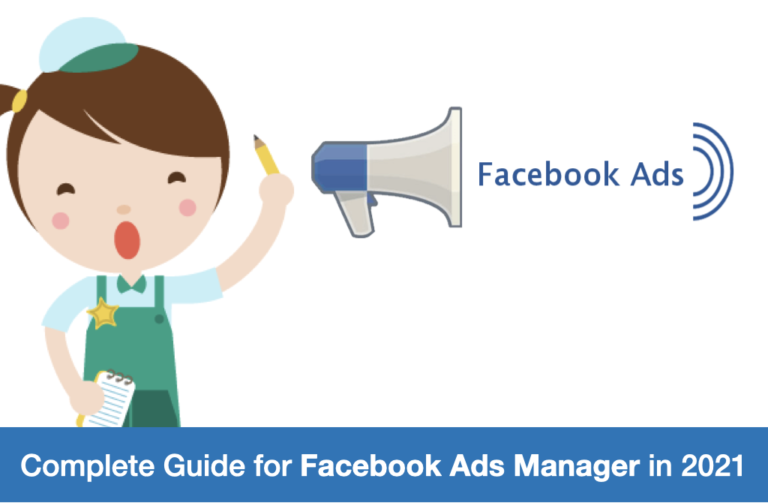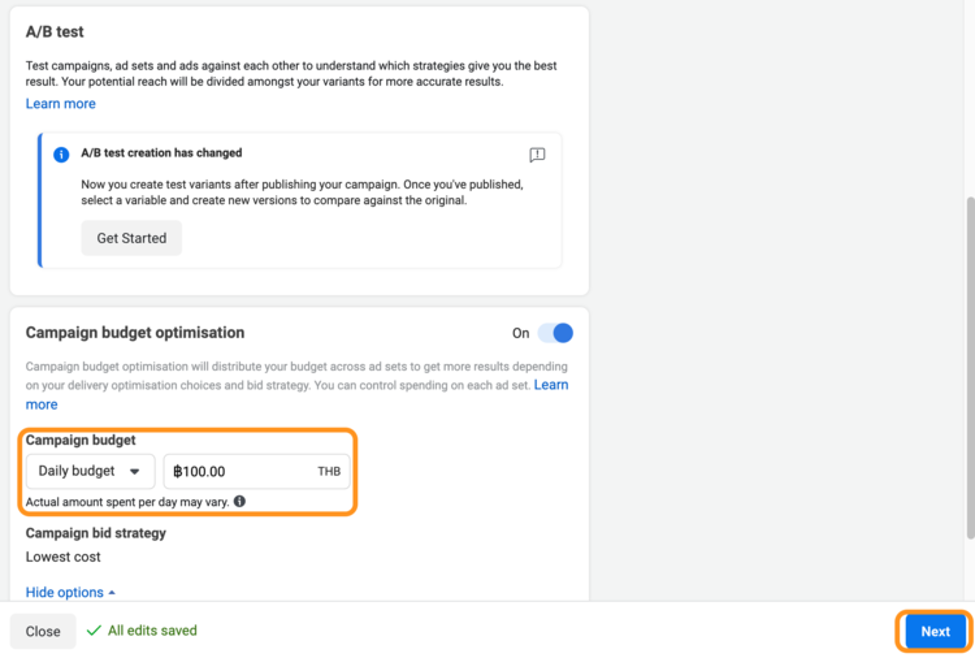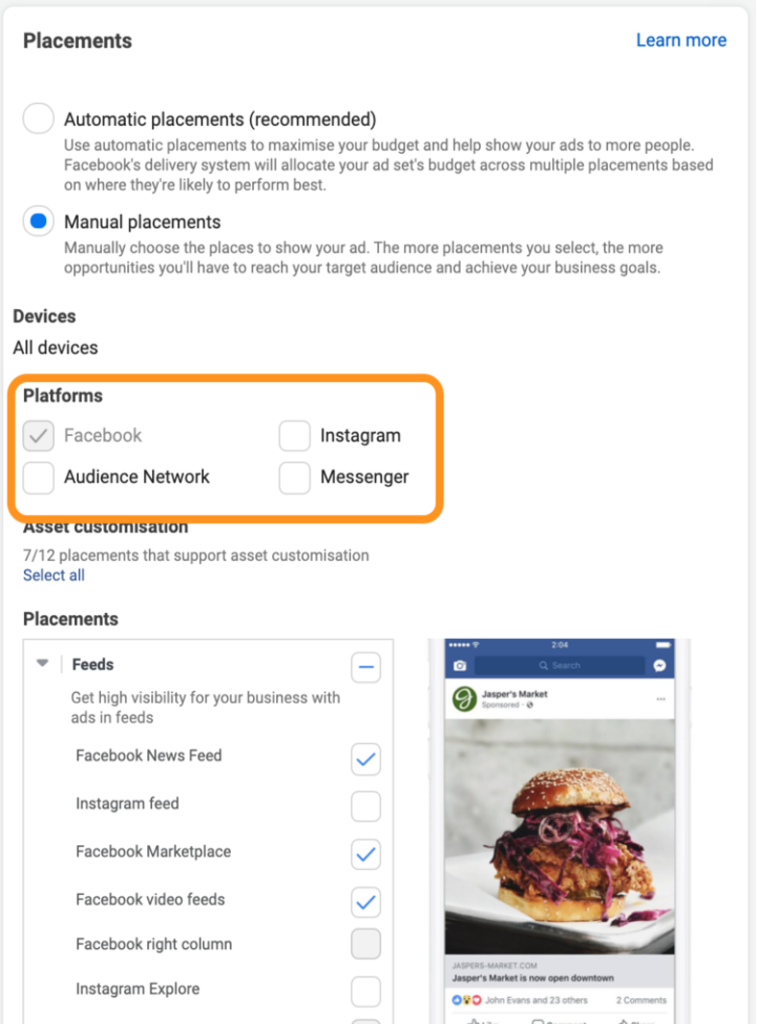How to use Facebook Ads Manager
the complete guide for 2021

Many online sellers might think that advertising on Facebook is complicated as there are so many steps to follow, thus they don’t want to do it by themselves. Actually, it is easy and you can do it just right after you have finished reading this article 🙂
What is Facebook Advertising
The word “FB ads” is a short term for “Facebook advertising”. Facebook ads are paid messages from businesses to promote their products/services to reach the target group. The objective of advertising is to encourage people to take any action on your business’s page, for example creating brand awareness, increasing sales, etc. In comparison, it is like a TV commercial that many businesses buy ads to reach the audience.
FB ads manager is a starting point for ads running on Facebook. It’s an all-in-one tool for creating ads that will help you promote your marketing campaign effectively.
How to use Facebook Ads Manager (2021)
To start advertising on Facebook Page, go to Facebook Ads Manager which you can easily access by using your own Facebook private account.
There are 3 main steps to advertise on Facebook Page in FB Ads Manager as follows;
1. Campaigns
-
Overview in Facebook Ads Manager is a centralized home for ad summary and updates
-
Select Campaigns > Select +Create to create your ad
-
Create a new campaign and choose your ad objective


AI system in Facebook will automatically analyze its user data and serve your ads to people in your target audience who are most likely to take the action.
Facebook breaks objectives up into 3 categories as follows:
Awareness: Objectives that generate interest in your product / service, such as Likes and comments on your ads
Consideration: objectives that target people who want to learn more about your product/service by building connections to the target group
Conversion: objectives that drive purchases
After choosing the objective, you will have to name your campaign, and then select Continue to open the creation pane
-
Campaign Details describe the details of your campaign and additional settings such as A/B test which is an advanced setting (beginner can skip this part) > Set your budget. There are two types of budget for Facebook;
Daily Budget: a daily budget for the average amount that you want to spend per day.
Lifetime Budget: a lifetime budget for the amount that you can spend over the entire runtime of your ad set.
Once you’ve finished, select Next to move on to set your target audience (Ad Set)

2. Ad Set
This step is an essential part of a successful Facebook ad if you choose the right target group. Here’s how to do it;
- Ad Set Name and Budget & schedule
Enter a descriptive name in the ad set name text box > Set your Budget & schedule by selecting your start and end date and setting your budget for the ad.

- Audience
To customize the audience, you need to set information for your ad so that Facebook can match this information with the target audience.
Location: select People living in this location; for example, if your target audience is Filipinos, then you must select the Philippines.
Age: customize the age range of your target audience.
Gender: customize the gender of your target audience

- Detailed Targeting
Select the most important targets as you can set campaign goals in this topic:
Demographics: demographic characteristics such as education, work, and lifestyles
Interests: interest in activities and related topics. For example, if you sell workout programs, you must choose Fitness and Wellness category
Behaviors: user behavior; for example, on a mobile phone or online shopping, etc.

Recommendation! It is very important to consider Audience Size along with setting up Detailed Targeting
The Audience Size depends on input information in Detailed Targeting. Each color in Audience Size has the definition as follows;
Green means your audience size is decent.
Yellow means your audience size is too broad. Facebook ads can’t reach potential customers effectively.
Red means your audience size is too narrow. Therefore, it is difficult for AI to find the target audience.

- Placement
the places where your ads will be in
Select Devices where the ad will be seen. We recommend that you select both mobile and laptop.
Select Platforms where the ad will be seen. There are Facebook, Instagram, and Messenger. For new users, we recommend selecting only Facebook.
Once you’ve finished, select Next to move on to the final step, choosing the post and running the ad

3. Ads
-
Ad name: naming your ad
-
Identity: selecting Facebook page that you would like to run an ad
-
Ad setup: selecting post that you would like to advertise
Create Ad: create a new post that is not on the page for advertising purpose
Use existing Post: select an existing post from the page for advertising purpose
Use Mockup: Choose a model or mockup of the product instead of the actual image in your advertisement

-
Tracking: installing a Facebook Pixel to track visitors as they interact with your web pages. If you don’t have a Facebook Pixel, you can skip this part
These are all about how to get started with Facebook Ads for beginners by using FB ads manager. It is easy-peasy, right?
Once you’ve finished filling up the information, select Publish to run your ad. Before ads show up on Facebook, they’re reviewed to make sure they meet Advertising Policies. After you publish, the system will link you to Campaigns where you can see your ad status. In this case, your ad status is shown as In Review which means it is under a Facebook verification process. When your ad gets approved, you will receive a notification.

The Difference Between Boosted Posts and Facebook Ads
What’s a boosted post?
A boosted post is a post on your Page’s timeline that you can set an amount of boosted budget to reach your targeted audience. It is simple as it requires several steps; set an objective, a budget, duration, and then click Boost Post. A boosted post will be shown on a target groups’ News Feed.
What’s are Facebook ads?
Facebook ads are created through Ads Manager and offer more advanced customization such as a variety of objectives, image customization, a call to action button i.e. sign up button, message button, etc.
Chris would like to encourage every online seller to create successful Facebook ads. Page365 helps you manage your back-office by integrating inbox messages from your social media platforms in one place. Our system also supports Inbox Messages from ad campaigns 🙂